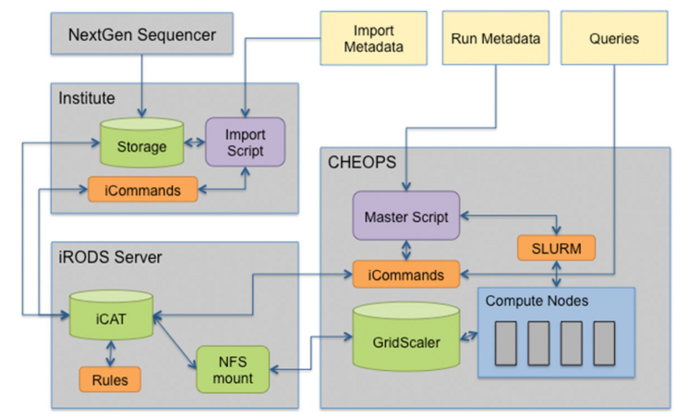CRC 1399: Mechanisms of Drug Sensitivity and Resistance in Small Cell Lung Cancer
Small cell lung cancer (SCLC), with up to 8000 new diagnosed cases in Germany each year, is the most aggressive lung cancer subtype, showing rapid cell division, treatment resistance, and a tendency to metastasise early.
The CRC 1399 interdisciplinary consortium includes experts from a variety of research backgrounds: biochemistry; signalling and structural biology; medical chemistry; structure-guided drug design; cancer immunology; modelling computational cancer genomics; molecular pathology as well as clinical trials. We aim at advancing the understanding of the molecular development of the disease with the ultimate goal of transferring our novel discoveries into clinical applications that improve the survival rate of SCLC patients.
RRZK in CRC 1399
The RRZK, as a member of the consortium, participates in three ways. First, through jointly developing and maintaining an automated and secure platform for sequencing data analysis; second, by supporting the optimisation of routines and workflows; and third, by contributing to the development of a research data management (RDM) strategy for the project.
In strong collaboration with the Department of Translational Genomics, the RRZK developed an automated workflow-based cancer-genome analysis pipeline using the metadata management system iRODS (Figure 1). This system has been tailored to the specific needs of the CRC, delivering a comprehensive framework with metadata that describes both the inputs as well as the results, thus enabling post-computation queries and analyses. Moreover, the RRZK has supported the continuous improvement of routines for the analysis of sequencing data based on user feedback. Using performance analysis tools, key areas for improving performance could be identified such as the optimisation of memory access patterns.

Since the beginning of the CRC, initiatives such as the Nationale Forschungsdateninfrastruktur (NFDI), incl. the German Human Genome-Phenome Archive (GHGA) and local RDM-support structures like C³RDM have emerged. The RRZK has supported an RDM gaps assessment and the formulation of a strategy with focus on the consortium’s needs.
RRZK researchers participating in CRC 1399:
Stefan Wesner (Z01 co-PI)
Viktor Achter (Associated researcher)
Lech Nieroda (Researcher)
Monica Valencia-Schneider (Researcher)
Contact
If you have any questions or problems, please contact the RRZK-Helpdesk